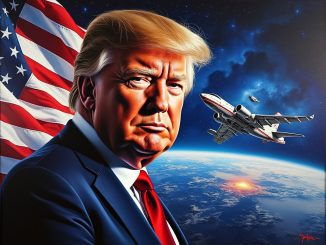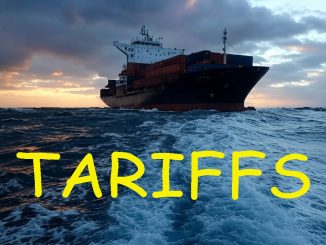- Peter Navarro, on CNBC, defended Trump’s global tariffs as a means to ensure fairness and boost U.S. manufacturing, dismissing Vietnam’s 0% tariff offer as insufficient and highlighting “non-tariff cheating” as the core issue.
- He argued that tariffs would bring production back to cities like Akron and Flint, citing rapid pandemic-era factory pivots (e.g., GM’s 14-day ventilator production) to counter concerns about an 18-month to three-year timeline.
- Navarro sidestepped recession fears and tax rate questions, emphasizing a $1.2 trillion trade deficit and $18 trillion in historical losses as unsustainable, framing tariffs as vital for national security and economic restructuring alongside Trump’s tax cuts and deregulation plans.

Peter Navarro, senior trade and manufacturing adviser to President Trump, appeared on CNBC to defend the administration’s sweeping global tariffs, framing them as a tool to restore fairness and bolster U.S. manufacturing, amid a discussion sparked by reports on the EU’s response to these policies. Navarro dismissed Vietnam’s 0% tariff offer as a “misdirection,” insisting that the endgame transcends mere tariff elimination—it’s about curbing what he calls “non-tariff cheating” by foreign nations that disadvantages American workers. He argued that tariffs serve dual purposes: raising revenue to fund what he described as the “biggest tax cut in American history” and incentivizing companies to produce domestically, pointing to a future where every dollar extracted from “cheating” foreigners reduces debt and delivers tax relief.
Navarro painted an optimistic vision of an industrial renaissance, suggesting that revitalized manufacturing in cities like Akron, Flint, and Detroit would drive real wages and profits upward, countering moderator concerns about immediate economic fallout. He acknowledged the pain felt by farmers, with soybeans, corn, and wheat losing ground to competitors like Brazil, but maintained that redirecting tariff revenues to affected sectors would ultimately yield long-term gains by bringing production home. When pressed on the timeline – potentially 18 months to three years for factory restarts – Navarro cited rapid pandemic-era pivots, like GM producing ventilators in 14 days, as proof of American agility, rejecting the notion that patience is a luxury the economy can’t afford.
The discussion also revealed tensions between short-term costs and long-term ambitions. Navarro sidestepped questions about adjusting the top marginal tax rate from 37% to 39.6%, calling it “not my lane,” while emphasizing that the $1.2 trillion trade deficit and $18 trillion in accumulated losses since 1979 demand urgent action for national and economic security. He brushed off recession fears, urging investors to see the market’s current dip as a buying opportunity, bolstered by Trump’s broader agenda of tax cuts, deregulation, and lower energy prices. Navarro’s stance reflects a belief that tariffs, despite immediate disruptions like rising oil fungibility or farmer relief requests, are a strategic lever to restructure global supply chains – evidenced by his critique of the auto industry’s reliance on German parts – and position the U.S. as a self-sufficient manufacturing powerhouse once more.
WallStreetPit does not provide investment advice. All rights reserved.
- Bulenox: Get 45% to 91% OFF ... Use Discount Code: UNO
- Risk Our Money Not Yours | Get 50% to 90% OFF ... Use Discount Code: MMBVBKSM
Disclaimer: This page contains affiliate links. If you choose to make a purchase after clicking a link, we may receive a commission at no additional cost to you. Thank you for your support!




Leave a Reply